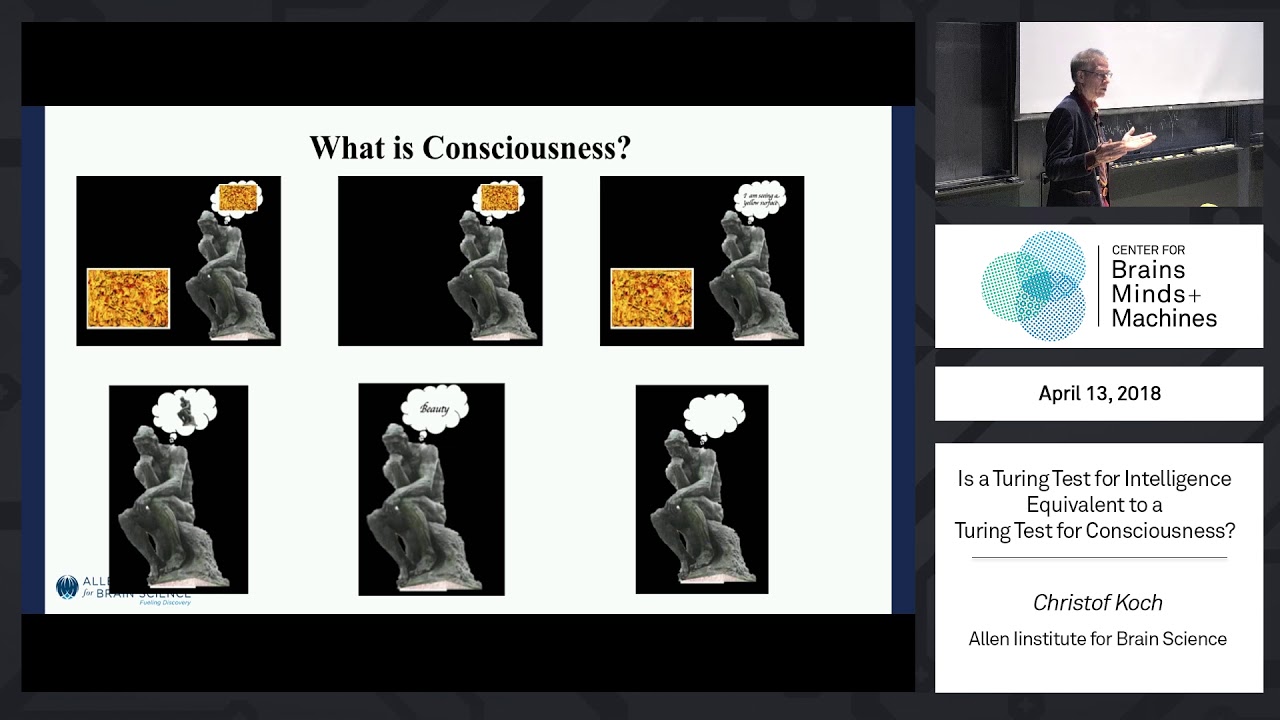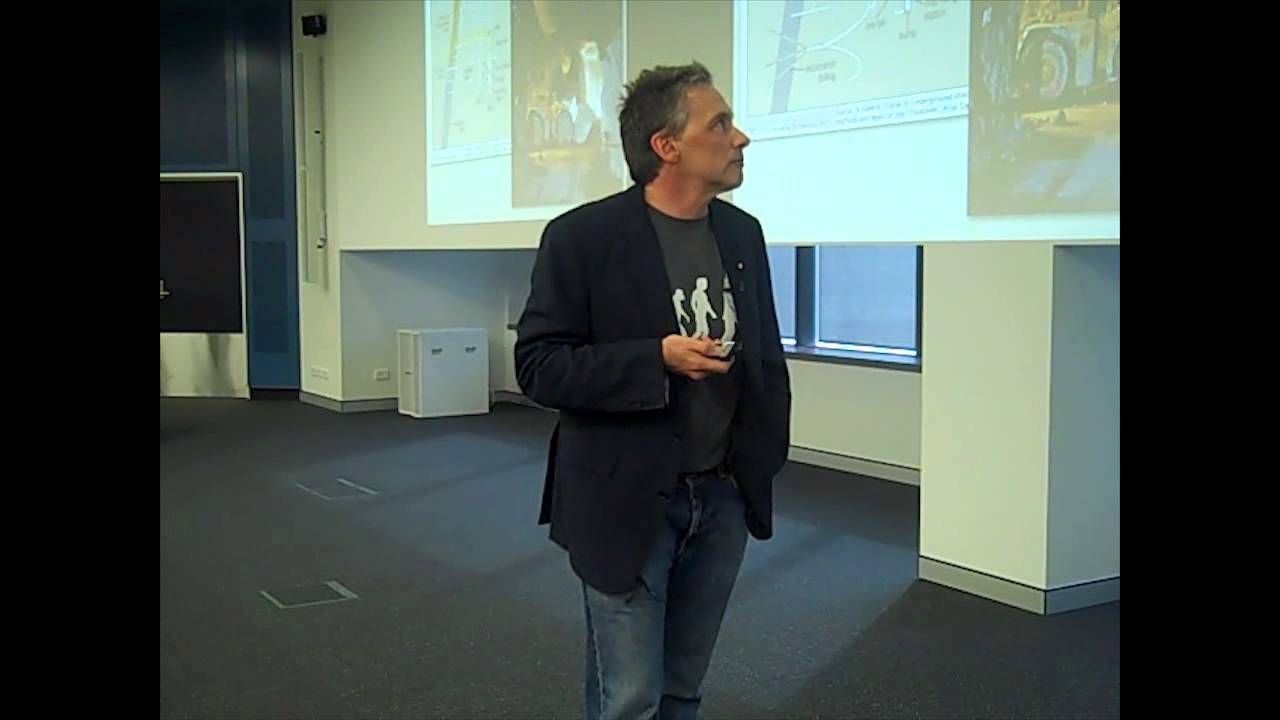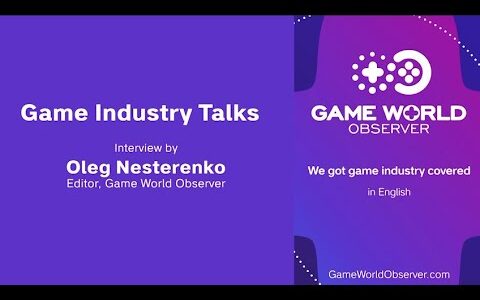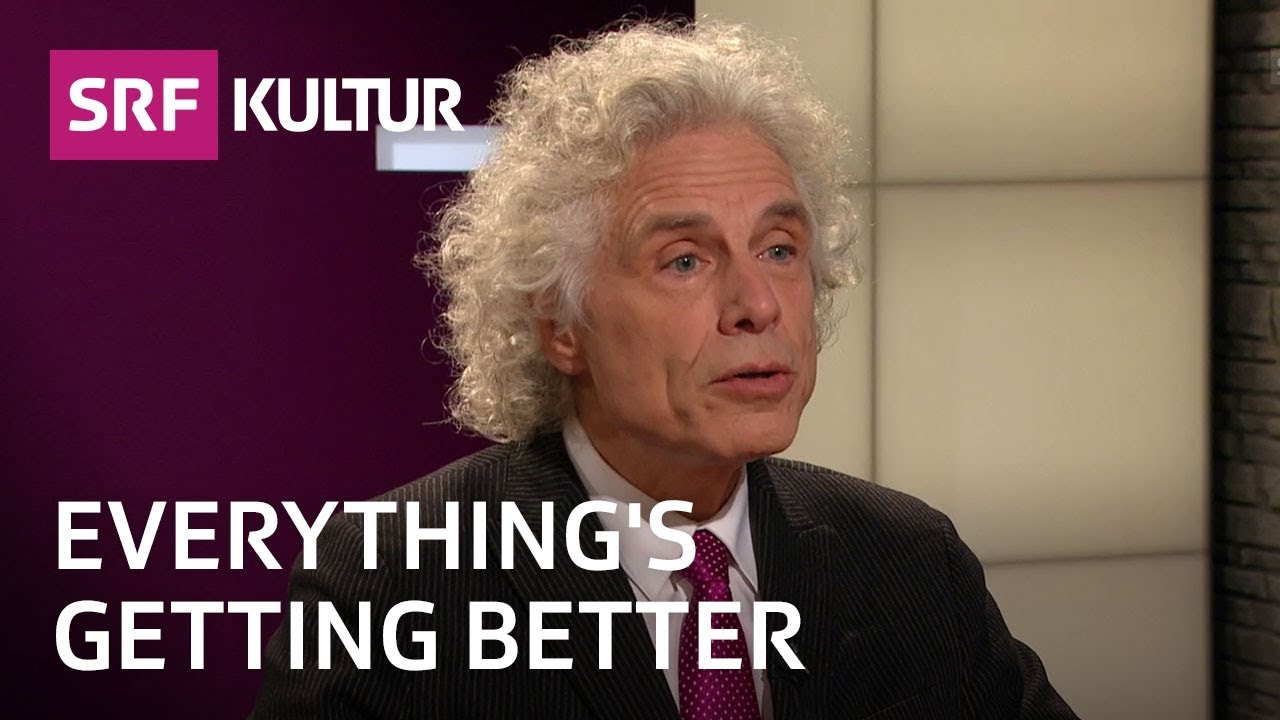Center for Brains, Minds and Machines (CBMM)
Christof Koch, Allen Institute for Brain Research
Abstract:
Rapid advances in convolutional networks and other machine learning techniques, in combination with large data bases and the relentless hardware advances due to Moore’s Law, have brought us closer to the day when we will be able to have extended conversations with programmable systems, such as advanced versions of Alexa or Siri, without being able to tell their siren voices from those of humans. This raises the questions to which extent systems that can pass a non-trivial version of the Turing test will also feel anything, that is, be conscious. I shall argue against this possibility for three reasons. Firstly, intelligent behavior, including speech, is conceptually radically different from subjective experience. Secondly, clinical case studies demonstrate that the neural basis of intelligence, self-monitoring, insights and other higher-order cognitive processes in the frontal regions of neocortex are distinct from the neural correlates of conscious experience in the posterior cortex. Thirdly, Integrated Information Theory (IIT), a fundamental theory of consciousness, predicts that conventional computers, even though they will be able, at least in principle, to simulate human-level behavior, will not experience anything. Building human-level consciousness requires neuromorphic computer architectures.
Speaker Bio:
Christof Koch is an American neuroscientist best known for his studies and writings exploring the basis of consciousness. Trained as a physicist, Koch was for 27 years a professor of biology and engineering at the California Institute of Technology. He is now Chief Scientist and President of the Allen Institute for Brain Science in Seattle, leading a ten year, large-scale, high through-put effort to build brain observatories to map, analyze and understand the mouse and human cerebral cortex.
On a quest to understand the physical roots of consciousness, he published his first paper on the neural correlates of consciousness with the molecular biologist Francis Crick more than a quarter of a century ago.
He is a frequent public speaker and writes a regular column for Scientific American. Christof is a vegetarian and cyclist who lives in Seattle and loves big dogs, climbing and rowing.
Source




Sad that Koch is still pushing Integrated Information "theory." A system that can cause itself is clearly a property of consciousness, but the systems that are obviously not conscious like graphite have this property, showing that it is not sufficient. For whatever reason, Tononi and Koch conclude from this that graphite actually is conscious, which has me wondering what could possibly falsify their theory.
It is not even a test for intelligence
🙂
so, does this mean that RNNs are more conscious than FFNNs? haha
Consciousness things can be dumb or smart.
On the other hand a non conscious thing could be intelligent.